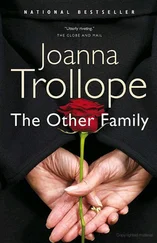Joanna Kavenna
Inglorious
But if he stood and watched the frigid wind
Tousling the clouds, lay on the fusty bed
Telling himself that this was home, and grinned,
And shivered, without shaking off the dread
That how we live measures our own nature,
And at his age having no more to show
Than one hired box should make him pretty sure
He warranted no better, I don’t know.
Philip Larkin
Chi non può quel che vuol, quel he può voglia
Leonardo da Vinci
She began it on an ordinary summer’s day when she found — quite in contravention of the orders of her boss — she was idling at the computer, kicking her heels and counting. Rosa Lane, thirty-five and several months, aware of an invisible stopwatch tolling her down, was counting the years, the hours spent sitting in offices, staring at the sky, at the flickering screen that was sending her blind. She had spent the previous ten years in a holding position, her legs locked under a table. She had typed a million emails and strained her wrists. She was no closer to understanding anything. Ahead she saw the future, draped in grey. Behind was the damp squib of her family’s history. She was sitting in the present, with this past and future whirling around her. And outside the city was awash with daytime noise — the grind of traffic, blurred speech, elusive choirs. The noise was ebbing and rising again, and she heard the cries of birds in the eaves. She thought of the river moving and the flow of cars, smoke drifting across the shine and colour.
Sitting at her desk that day, sweating into her shirt, she thought, If they told me I would never do anything more than this, would I want to live or die on the spot? Then she thought, What is the reason for it all, what is it for? That really cut her up, so she wrote an email to her boss. It was terse and elegiac. It began with her youth, early career, thanked him for his patronage, communicated her deepest regrets and ended with the words ‘I resign’. She was emphatic; she pressed Send and then she shut down her computer. She picked up her hat and coat and walked. She was having a fit of nerves by the time she passed the guardians of the gate, the two fat porters who sat there trading jokes. They sauntered towards her. If they had spent another second rattling the keys she would have crumbled and begged them to lock her in for ever. Then the gate swung open. ‘Off home early,’ they chorused, and released her. Rosa went out onto the street, where the cars were queuing to go forward. Then she went home.
It was a Monday in June when Rosa left her job. It was early afternoon, and she sat on the semi-empty train marvelling at the space, the available seats. She felt a gust of air as the doors swept shut. She stared at the adverts for phonecards and car insurance. Palliatives, she thought. She glanced at the passengers, barely noticing their distinctness. A less concentrated crowd but still part of the hordes. She laughed at an advert and picked her ear. A man caught her eye and she quickly dropped her gaze. She observed the dirt on the walls, she traced her fingers round the stains on the seats. She filed every detail of the carriage away.
She was at Dante’s mid-point, the centre of life, when she was supposed to garner knowledge and become wise. This was assuming she had used her earlier years for study and application, like the poet, but she had measured them out in weekend binges and European holidays. For years she had been productive at work and as idle as anything in the evenings. Time coursed along and she earned money. She stayed firmly in her box. She had been a journalist for years, sliding her way upwards. She wrote on the arts. She understood — it was quite plain to her — that she was meant to be ruled, not to rule. She hardly had the mettle for power play and the tyrannical control of fiefdoms. Her life had been supported by a few buttresses: belief in her job, the love of her parents, her relationship with Liam. These had stopped her thinking about anything too deeply.
Yet recently she had been feeling dislocated. The death of her mother, in January, was the start of that. She understood it was natural process, inevitable and unquestionable, but it knocked her off course and she couldn’t right herself again. She went into work and was congratulated on her perseverance, but at night she was troubled by bad dreams, grief sweats, fear of the void, internal chaos that she tried to keep well buried, aware that her experience was general not exceptional and she really ought to button up. She missed her mother, of course, she felt the lack of her like a deep soundless blackness, and she thought it was impossible that this should be the natural condition of life. She felt as if a seismic shift had occurred; the ground had fallen away, revealing depths below, shapes clad in shadow.
Her mind was casting out analogies, hints at a deeper complaint. She felt restless and she had vivid dreams. Her thoughts held her, stopped her being useful. She lacked a defining metaphor, a sense of coherence. She felt coerced to the social pattern, her instincts dulled. She needed a local mythology, some sense of a reason why. Instead, she was teeming with frenzy and obscenity. She could curse her way home, damning the street and condemning the innocent and guilty alike. And she noticed that her sense of things was changing, it bemused her to think about it. Instead of seeing herself as the centre of her own small world, with the city as the backdrop to her life, she began to see everything as a fractured mess, a wild confusion of competing atoms, millions of people struggling to live. She lacked a doctrine, a prevailing call. She was surrounded by monomaniacs, yet she was indecisive. All ways looked as impassable as the others. She was in a labyrinth, lacking a ball of twine! Disoriented as anything, and she couldn’t kneel and pray, she was sure that wouldn’t help at all.
In March, concerned about how detached she was feeling, she’d asked Liam to marry her. Liam said no, which shocked her profoundly. More than shocked, she was deeply offended. They flagged on for a few more months, but anyone could tell their relationship was holed below the waterline. There were days when she felt it all as dark comedy, bred of the absurd situation she found herself in. With the clock ticking, she was spending her indeterminate span of years on the Underground, holding on tight to a metal pole, sitting at her desk checking her emails, earning money and lining her belly. This sense of the ludicrous crept into her prose. In April she’d written an article on Swedish contemporary dance, which opened: ‘Dark, dark, dark we all go into the dark. The dancers have all gone under the hill.’ The editor had sauntered over to her desk, and demanded that she erase the offending lines on her computer. ‘Never,’ he said. ‘Never quote that crap again.’
By May she was writing in fragments. It was unfortunate, as her job was to write and explain, to produce quantities of lucid prose. Instead, she stared at the computer, with the bare notes of a story in her hand. Embarrassed, she wrote: ‘The Modernist Novel’. After another hour she wrote: ‘Rosa Lane reports’. Then it was lunchtime and she wrote: ‘If Lunch be the Lunch of Love, Lunch On.’ Then later she wrote: ‘Shuffle Off’ and ‘Mortal Coil’ on two lines. Then she accidentally pressed Send, and emailed her few phrases to her editor, who ignored them. Her focus seemed to be slipping. Where once she had read the paper every day, noting the preoccupations of society and her colleagues, now she flicked through a few pages and tossed the thing away. She was left with odd words — ‘BLAME’, ‘WORSENS’, ‘REPRIEVE’, ‘SILENCE’ — and some images of a screaming mother, a model clad in satin, a bomb victim. None of it made any sense. Now she wrote: ‘I want. We want.’ And then she wrote: ‘What is it?’
Читать дальше












